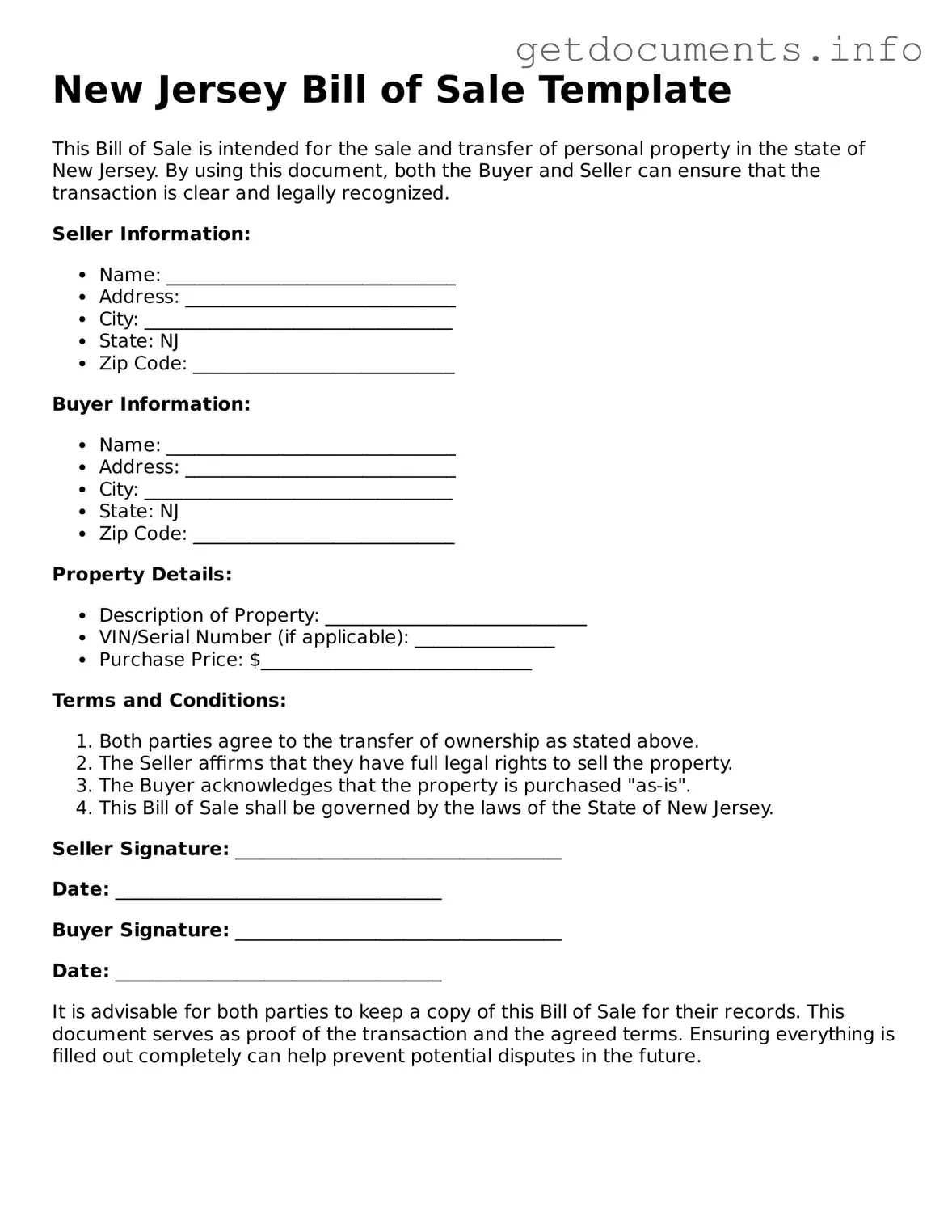Free Bill of Sale Template for New Jersey
A Bill of Sale form is a legal document that serves as proof of the transfer of ownership of personal property from one party to another in New Jersey. This form is essential for ensuring that both the buyer and seller have a clear record of the transaction, protecting their rights and interests. If you need to complete this important document, click the button below to get started.
Access Bill of Sale Editor

Free Bill of Sale Template for New Jersey
Access Bill of Sale Editor
Got places to be? Complete the form fast
Fill out Bill of Sale online and avoid printing or scanning.
Access Bill of Sale Editor
or
⇩ PDF File
